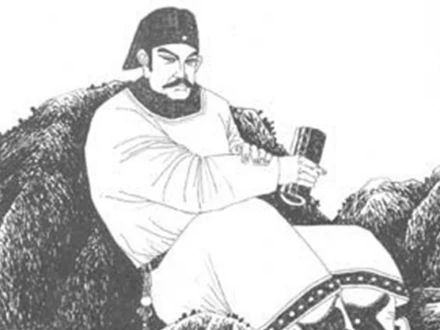
Translating poetry is difficult depending on how dedicated you are trying to be. Can you really replicate the exact prosody or syllabic, linear sound systems from one language to another? The answer depends on the languages you are trying translate from and two. For example, one could argue that going from Italian to Spanish would be a lot easier than Chinese to English, or Armenian to Xhosa. After all, Spanish and Italian are closely related to each other than Chinese and English — which both seem mutually alien to each other. One is pictographic, and the other uses a Latin alphabet to represent phonetical sounds. It seems all one can hope for, at times, is a close approximation or imitation of the original’s intent.
I tried this again recently with my third attempt translating Chinese poetry into English. This recent effort involved Qiao Ji (1280-1345 CE). He was originally from Shanxi, but as a imperial civil servant likely ended up traveling all over the Middle Kingdom ended in the greater Jiangnan (regional name for “south of the Yangtze). I found this particular poem by entering “Piling (毗陵)” into gushiwen.cn — a digital archive of ancient Chinese verse. Also, Piling is the older, largely forgotten, historical name of Changzhou. One result with gushiwen included this.
江南倦客登临,多少豪雄,几许消沉。今日何堪,买田阳羡,挂剑长林。霞缕烂谁家昼锦,月钩横故国丹心。窗影灯深,磷火青青,山鬼喑喑。
Google Translate rendered that as:
Jiangnan tired guests come, how many heroes, how many depressions. What a shame today, buy Tian Yangxian and hang a sword in Changlin. Whose day brocade is rotten by the rosy rays, and the moon hook crosses the heart of the motherland. The window shadow lights are deep, the phosphorous is green, and the mountain ghosts are roaring.
After carefully looking up each and every Chinese character and and implied idiom, I toiled away and took my liberties with the original text to write the following poem. By the way, the source lacks line breaks. I imposed that on this for dramatic effect.
An Evening View of Piling
Weary Jiangnan travelers climb hills.
How many high minded heroes,
how many lost in somber states?
This day bears, endures shame –
time to resign duties, time to retreat
to the shadows of sole seclusion,
to hang my sword deep in the woods.
Threads of glowing dusk decays
away from bright brocades of day.
The hooked moon moves harshly
over the heart of my motherland.
Shadows through the window deepen
phosphorus-green will-o’-the-wisps.
Mountain ghosts mourn in silence.
If this poem is truly about Changzhou, the hills or mountains may be around Hengshanqiao part of the former Qishuyan district. Out near the city line with Wuxi, many hillsides are lined with tombstones. The former Piling is a mostly a flat place, between the banks of the Yangtze and three lakes: Taihu, Xitaihu, and Changdang. The hills are always at the edges of town. Another notable candidate involves Maoshan, which is out by the prefecture edge with Zhenjiang. It’s a Chinese-nationally-known center of Taoist spirituality. The afterlife is a big deal in both Bhuddhism and Taoism. Yet, all of that are guesses from a novice translator.
